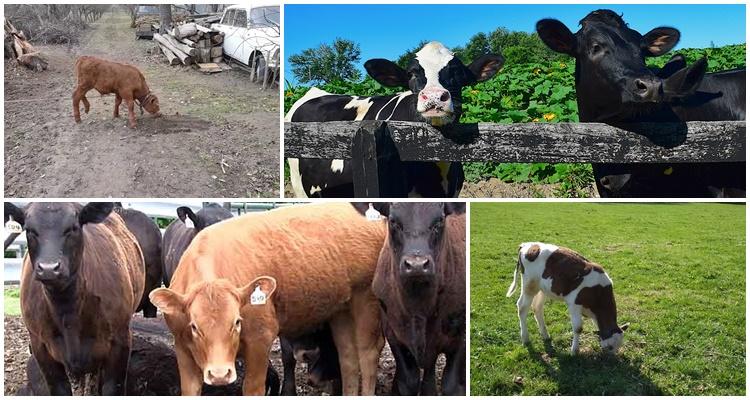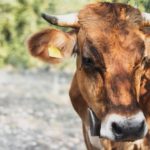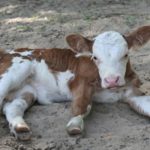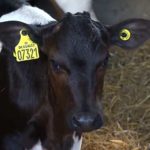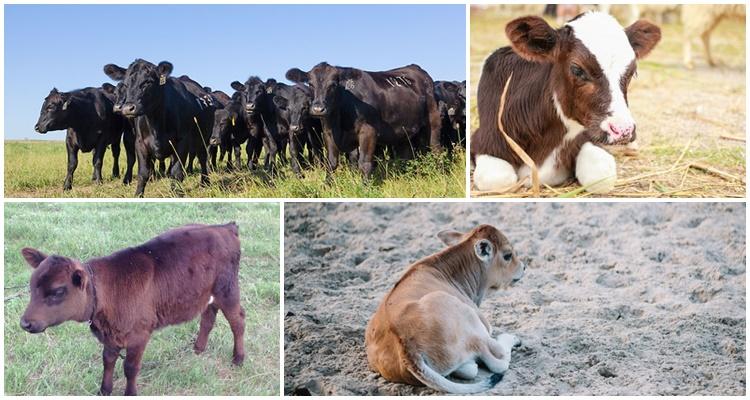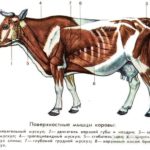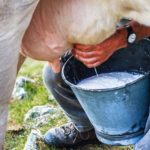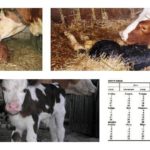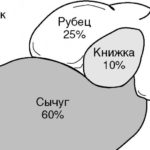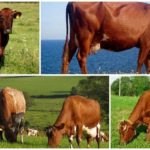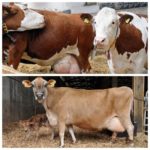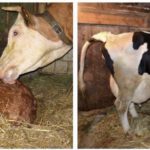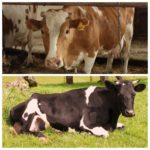Calves or cows begin to eat soil or sand even in the presence of fragrant hay and a clean barn, and not just in the absence of food. There are a number of reasons for this, which lead to negative changes in the body and deterioration of the animal’s condition. When trying to understand why calves sometimes eat soil, it is better to contact a specialist, but you can try to figure it out on your own.
Why and what to do if cows eat soil
When cows and calves start eating everything around them and even the earth, they pay attention to their diet. Nutrition is the basis of health.The animal is not able to talk about its well-being, so it reaches for any object if there is a lack of something in the body. At the same time, the cow begins to try what she can reach.
Soil is a mixture of water and solid organic and mineral particles: oxidized iron, lime (calcium and magnesium), chalk, plant debris and much more. Not finding food or trying to fill its stomach, the animal begins to eat soil. As a result, illness or malfunction of the digestive system, even death, is possible.
Ketosis
A disease in which cow's milk smells of acetone is ketosis: this is an increased level of acid formation in milk and urine, changes in organs. Cows most often suffer from it at calving and in the first months of lactation - the calf eats low-quality milk, which causes a decrease in vitality and depression. He becomes timid, eats poorly, and the cow gives less milk and loses weight.
In advanced cases, toxicosis is diagnosed, unhealthy enlargement of the liver, mucous membranes, breathing and pulse increase. Animals lie down due to loss of strength, appetite changes - cases of eating soil are not uncommon.
Osteodystrophy
When consuming feed that is rich in some substances and minerals more than others, osteodystrophy develops. The reasons lie in an increase in the intake of some substances (hay has a lot of calcium, in concentrates there is a high phosphorus content) and a decrease in others (deficiency of vitamin D, magnesium, iron). This leads to a loss of substance balance and ionic equilibrium.
There is a transition of substances from organs where there are reserves to where their levels are low: organ restructuring, bone and muscle tissue degrade, metabolism suffers. Cows lose their shine and productivity drops. Tastes change: licking of walls begins, regular food is poorly eaten, roots, boards and soil are eagerly eaten.
Hypocobaltosis
If the calf eats soil, hypocobaltosis is likely - disorders due to cobalt deficiency. Signs of anemia appear, the bowel movements change (constipation alternates with diarrhea), the desire to eat unusual food appears: tree bark, bones, lick each other and walls, chew soil.
If the disease is not recognized, the imbalance of substances in the body will increase. Structural and functional changes will begin to occur in the visual, respiratory and circulatory systems.
Hycuporosis
Also, the reason cows eat soil is hypocuprosis: the disease manifests itself when there is a lack of copper. Abnormal hair coat, developmental delays, diarrhea, deformed joints and perverted eating are the main signs. The metabolism changes so much that the animal becomes constantly hungry and strives to fill its stomach. It even goes so far as to lick nearby individuals, resulting in the formation of balls of hair in the stomach.
If a cow has eaten soil with such symptoms, urgent measures are required. There are no other characteristic signs, so the main criterion for the disease is attempts to eat inedible things.
Preventive actions
Due to the imbalance of substances entering the body of calves, the best measure is to control nutrition.According to studies and numerous examinations of animals, minerals, metals and vitamins necessary for growth and development are not enough when eating according to the “eat something and it’s good” diet. Living conditions greatly influence the state of health - the stall is regularly cleaned and ventilated.
From the first days of life, the calf should add semolina porridge to the milk, they offer mashed potatoes - the composition is quite rich and at the same time suitable for a small body. After a week, you can give peelings, berries, carrots, and legumes. Animal food should contain large amounts of fiber and protein. It is optimal to obtain metals and minerals from natural foods.
All food and feed should be checked for cleanliness from the soil. Increased stress on the digestive system is undesirable. You can add grated chalk and bone meal, table salt to the hay - the balance of salts will be replenished. A clean stall will complete the grooming. If signs of illness appear, it is better to contact a veterinarian as soon as possible. Vaccinations, vitamin supplements or special foods normalize the situation.

